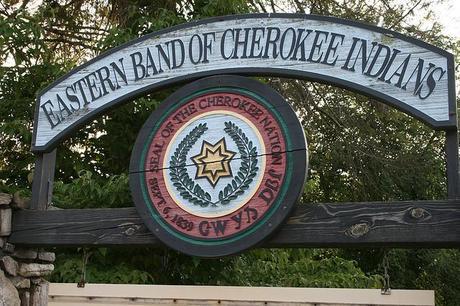by Holly Kays / Smoky Mountain News

The June legislation that lifted the state’s moratorium on fracking included a clause keeping local governments from outlawing the practice in their jurisdiction, so their resolutions are an expression of opinion rather than an act of law. But the Eastern Band is a sovereign nation, so the tribal council is able to completely prevent drilling on Cherokee land.
“The State of North Carolina is without legal authority to permit hydraulic fracturing on Tribal Trust lands,” the resolution reads, later continuing, “The Eastern Band of Cherokee Indians will not permit or authorize any person, corporation or other legal entity to engage in hydraulic fracturing on Tribal Trust lands.”
Though Councilmember Perry Shell says he understands the economic benefits of producing natural gas, he’s not convinced that it can be done without harming the land.
“I don’t think we know enough about it, and I’d hate to see the earth damaged,” Shell said.
Fracking, which involves injecting water mixed with sand and chemicals underground to hold open cracks in deep rock layers, allowing fossil fuels to flow out of them and up the wellbore, has been around for decades. But only in the last 10 or 15 years has it been mixed with horizontal drilling, a technology that allows wells to go as deep as 2 miles below the ground before turning horizontally for up to another 2 miles through the oil- or gas-bearing layer.
The Cherokee resolution also expresses support for a statewide ban on fracking, particularly in the national forests.
“I think it’s important that we be good stewards of our natural resources,” Shell said. “I think we live in one of the most beautiful places on earth, and I would hate to see that environmental damage.”
Governments in Western North Carolina that have passed anti-fracking resolutions include Swain County, Haywood County, Franklin, Forest Hills, Sylva, Webster and Bryson City.

